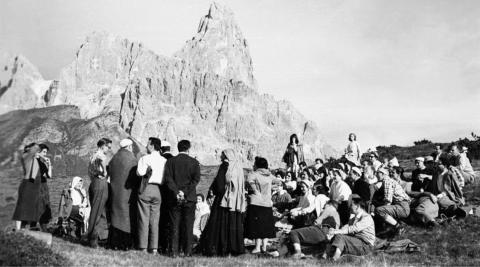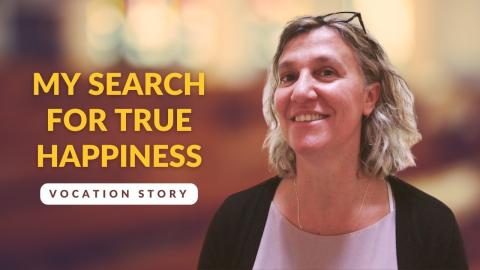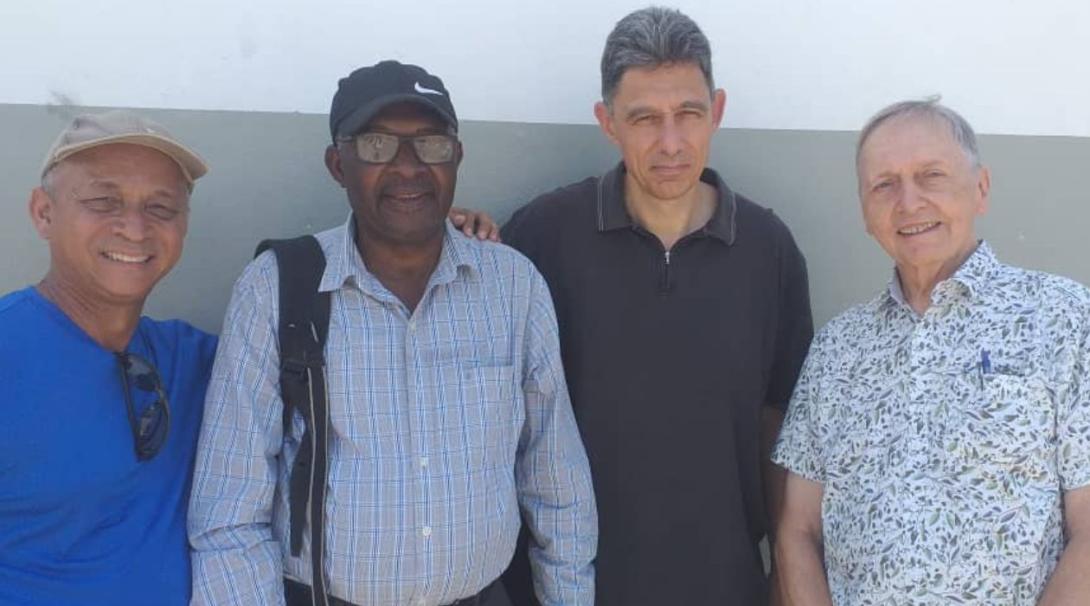
André Weis, Etienne de Villemeur, and members of the Focolare Movement at Haiti's Mariapolis
There have been Mariapolis gatherings in Haiti since 1989. We have been privileged to participate in many of them, and were rejoicing at the opportunity to be there again when we left Canada at the end of July. But we didn’t quite make it there.
You see, the Mariapolis was taking place in Montorganisé, a mountainous area close to the border with the Dominican Republic. When visiting there in the past, we have accepted the hospitality of friends to help us enter Haiti from the close-by border city of Dajabon. So we had planned to do that again this time.
But we were forgetting the vivid tension between the two countries. The Dominican Republic has closed its borders with its neighbor, and so we were prevented from crossing the river and presenting ourselves to the Haitian border officers. We kept messaging our Haitian friends, trying to find another way to join them, but without success. So this report comes from the accounts of our friends in Montorganisé.
The Haiti Mariapolis is unlike others you may have known. Even the simplest gestures, such as offering a glass of water to participants, requires serious considerations. You need to procure glasses—and water. This means that you need to find someone who will lend you this material, and build a team of people who will walk to the closest source and carry back the precious liquid. Sitting under a corrugated iron sheet roof, the temperature hovering over 35°C (almost 100°F) makes that need for water even more necessary.
The Haiti Mariapolis is unlike others you may have known. Even the simplest gestures, such as offering a glass of water to participants, requires serious considerations.
Simply welcoming people requires a lot of work in Haiti, and indeed, preparation of the Haiti Mariapolis started more than two months ahead of time, and involved more than 100 people, many of which were youth, distributed over many committees (like the one for water). My point is not that we have a harder time than others, but to ask: Do we still take the time to ask how to welcome people and respond to their needs? Or, do we take for granted that we are all content alongside others, because we’re already satiated?
Haiti Mariapolis was not a quick three-or-four days experience in between other things. For many participants, it was the visible part of several weeks of commitment, and the outcome of a sustained collective effort.
The total number of participants was limited by the logistics and capacity of the buildings. Last year, we were able to accommodate 500, but not as many this year. More would come if we had the capacity for it. For this reason, Word of Life groups send only a few representatives and take turns from one year to the next.
Others find it difficult to gather the participation fee, despite it being kept to a very minimal amount. Most of the people in Haiti engage in subsistence farming, and gathering money for the Mariapolis becomes like a small investment that they plan for months ahead.
There is a striking solemnity among all participants, who wear their best clothes and shoes just before entering the building, after having perhaps walked a few kilometers barefoot to preserve their shine. We wish we had the same degree of awareness in what we do. Here, where unfortunate hazards are not uncommon, everything that happens is quickly understood as “the will of God.” This could be seen by an outsider as an unhappy call or justification for resignation. Yet, one realizes that these expressions in fact reflect the deep relationship that people have with God in its everyday life.
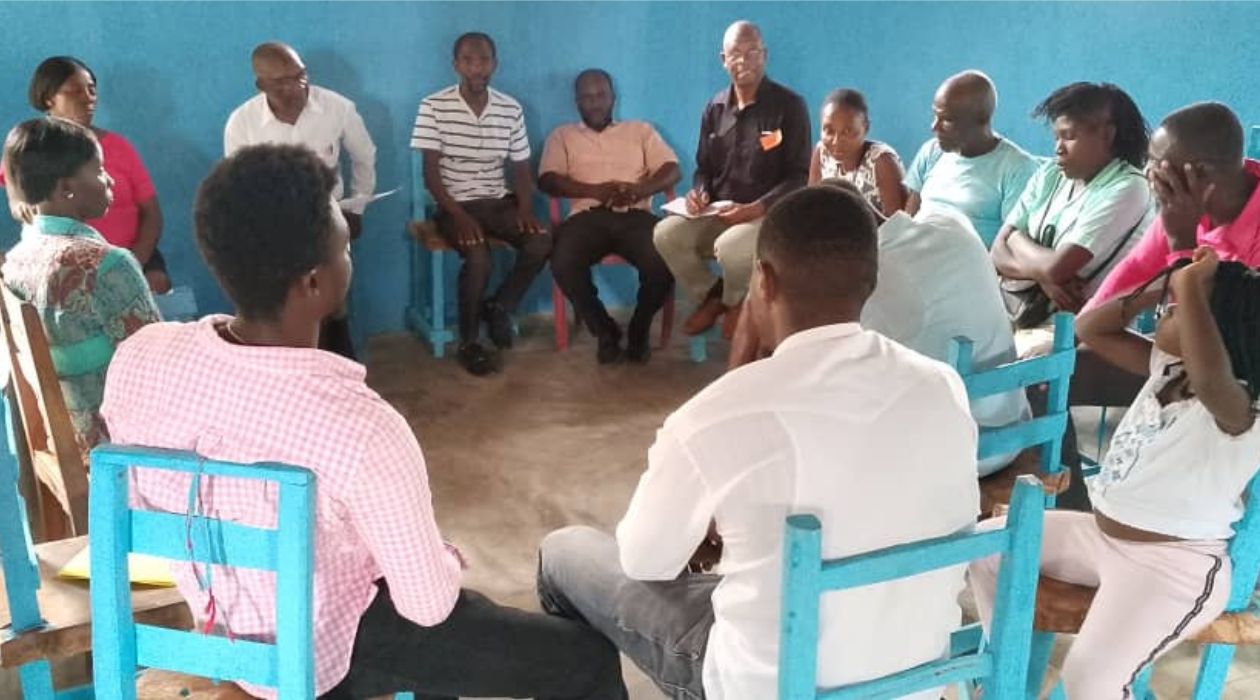
People gathering at the Haiti's Mariapolis
To the question, “How are you doing?” a standard answer in Creole is “Very well, with Jesus.”
God is present everywhere. He appears on city buses: “I am the way (John 16:4),” or in the name of the shops and businesses. This isn’t just folklore—for many, God is indeed part of everyday life.
Whatever situation you are in, this is not by chance. You were called by God to live it. As such, you should face it: as a call and a mission received from God who will give you the strength to deal with it. We wish that we would have the same trust in God to receive each moment as a gift, even in the midst of adversities.
It is difficult to convey to someone who has never been there what living a Mariapolis in Haiti means to us. We don’t want to arrive at any easy conclusions. A Mariapolis is meant to be a special moment with God, by which we recharge our batteries to start again and stronger in the love for God and the others. No one can pretend knowing what God wants to offer each of us.
The Mariapolis took place in Haiti this year from August 6-8, with a little more than 300 participants. These excerpts from the talks, on the theme of being “Called and Sent,” touched many participants particularly:
Some were chosen to support others economically; others to support by the means of prayer. That is: each of us is a chosen one…. God is calling us all.
Yet, let’s ask ourselves, how do we answer? You meet someone who is going through a difficulty. God sent you to help this person. Do you bring her support?
When God entrusts you with some mission, he doesn’t abandon you, he is with you. God knows the difficulties you are facing. That’s why he told us, “I am with you.”
God is present everywhere. He appears on city buses: “I am the way (John 16:4),” or in the name of the shops and businesses. This isn’t just folklore—for many, God is indeed part of everyday life.
When God chooses us, at times we find some excuses. Of course, we don’t excuse ourselves in front of God, but when the difficulties are coming, we often find some excuses like: Why me? Why do you ask me? Why not some else? So-and-so would do it better…
But God chooses you for this mission. He knows you are able. You feel unable because you forgot that he is with you.
If we fall into the trap of these thoughts, like “I am unable,” or “I don’t have time,” it means that we do not believe in the love of God. Because when God entrusts you with a mission, you should not be afraid: God is with you. If not, you don’t believe in the love of God for you.
Help us, O Lord, to have the same faith!
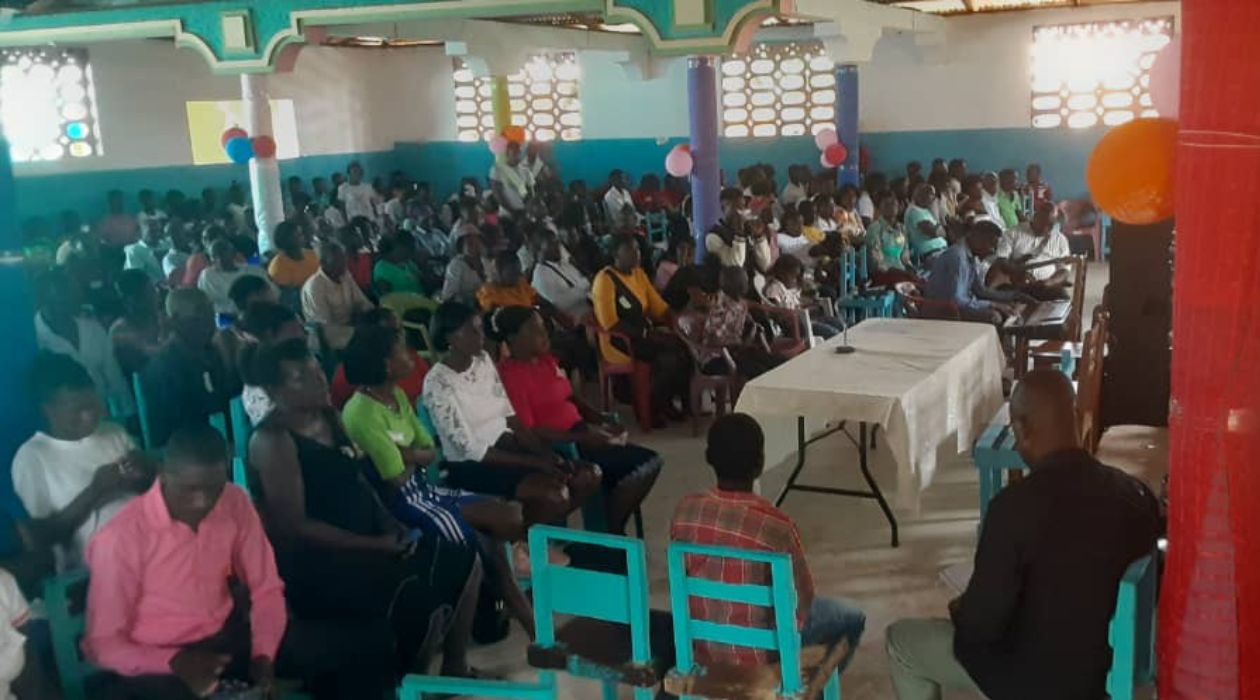
Members and friends of the Focolare Movement at Haiti's Mariapolis









